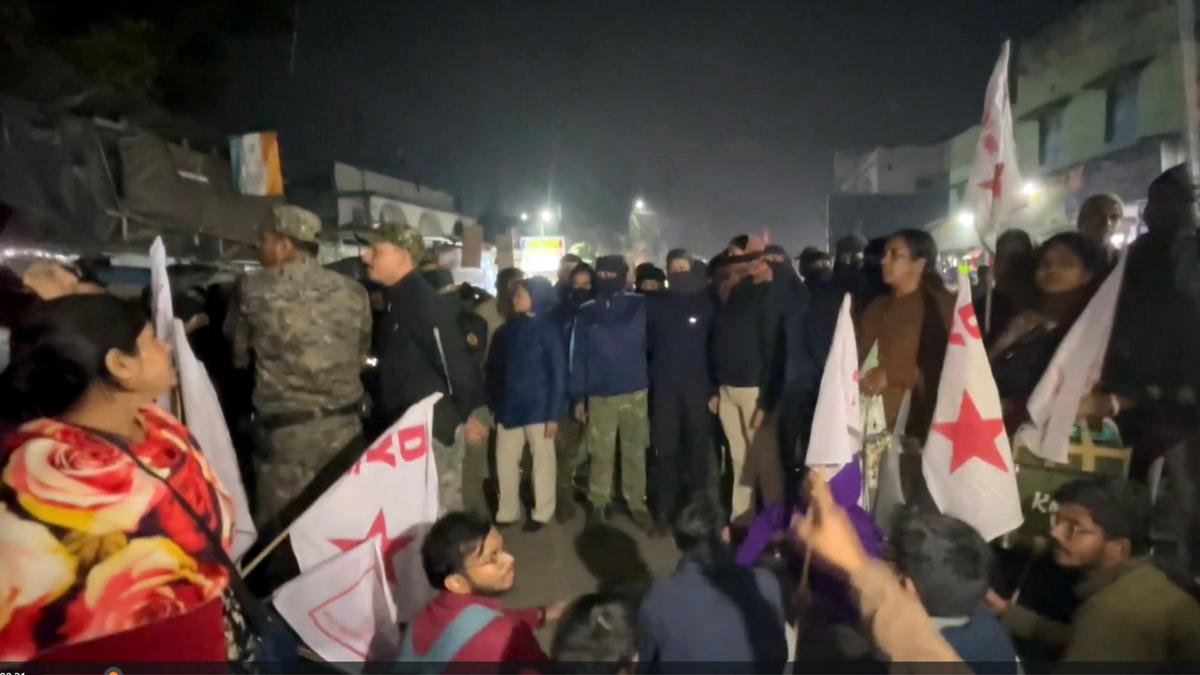West Bengal Doctor Suspension Controversy: Expired Saline, Medical Negligence, and a City in Uproar
The recent suspension of 12 doctors at Midnapore Medical College and Hospital (MMCH) in West Bengal has ignited a firestorm of controversy. The accusations? Medical negligence and the administration of expired saline solution, resulting in a tragic death and several critical illnesses. This shocking incident has sent shockwaves through the medical community and the public alike, sparking heated protests and legal battles. Find out what happened and who's really to blame!
The Expired Saline Scandal: A Woman's Death and a Hospital's Crisis
The heart of this controversy lies in the tragic death of a postpartum mother and the critical condition of four others following the alleged administration of expired Ringer Lactate solution. This intravenous fluid, manufactured by Paschim Banga Pharmaceutical, a company already facing scrutiny for sub-standard products (even facing a ban by Karnataka government), is under intense investigation. This incident highlights potential systemic failures within MMCH and questions of quality control within West Bengal’s pharmaceutical system. Was it truly medical negligence by the doctors, or was a flawed product to blame? This question remains central to the unfolding saga.
Protocol Followed or Negligence? The Doctors' Defense
The suspended doctors, six of whom are junior doctors, vehemently deny any wrongdoing, asserting that they meticulously adhered to all established medical protocols. They've requested a comprehensive and impartial investigation to prove their claims. The protest initiated by junior doctors, joined by the West Bengal Junior Doctors Front (WBJDF), underlines their sense of injustice and a broader concern about professional safety and accountability within the state's medical infrastructure. Their letter to the Director of Medical Education (DME) demands detailed investigation and a retraction of the suspension. The protest reflects deeper questions about medical oversight and the potential scapegoating of medical staff.
Calls for Justice and Accountability
Following the initial suspension, the Joint Platform of Doctors released an open letter addressed to West Bengal's Chief Secretary. In this letter, they denounce the suspension as "heightened administrative assault and punishment", highlighting the use of non-bailable sections. It labels the suspension as a form of vengeance and describes the situation where the medical community has become a "scapegoat" for larger systematic issues. These strong accusations increase pressure on the government for swift, effective intervention and review of the whole incident. This unified voice among medical professionals strongly suggests systemic flaws. The broader implications are undeniable and suggest a need for critical review.
Legal Ramifications and the Calcutta High Court
A suspended senior resident doctor from MMCH has filed a petition with the Calcutta High Court. In a critical turn of events, the petition accuses the Crime Investigation Department (CID) of accelerating investigations, placing all the blame directly onto the junior doctors and overlooking other factors. These include questions regarding the efficacy of the controversial Ringer Lactate solution. By directly requesting police action protection, the petitioner throws into doubt the speed of CID actions, highlighting potential weaknesses and an absence of due process. The case, to be heard on January 27, promises to be highly significant.
A Battle for Justice and Systemic Reform
The legal battle, currently before the Calcutta High Court, casts a wider spotlight onto MMCH. The investigation does not merely concern medical negligence, but questions about pharmaceutical standards, administrative responsibilities, the actions of law enforcement, and the role of healthcare oversight. The broader implications include accountability of all stakeholders and calls for wide reforms in medical training and practice in West Bengal's medical facilities.
The Ongoing Impact and Future Implications
The incident at MMCH is not just an isolated occurrence; it reveals deeper systemic vulnerabilities that must be addressed proactively. The suspension of the doctors—and their subsequent withdrawal of cease-work—has sparked a significant discussion on the treatment and protections afforded to healthcare workers in the state. Furthermore, issues of due process and potential scapegoating are likely to attract increased political focus. This is likely to affect public confidence in state medical facilities and may even impact recruitment of healthcare professionals in the region.
Lasting Concerns and Path Forward
The situation underscores issues around pharmaceutical regulations, transparency in medical procedures, and governmental accountability in providing sufficient resources and oversight in the public healthcare system. A thorough investigation, beyond merely assigning blame to individual doctors, needs to consider all systemic aspects. It must explore how incidents of this nature may be prevented in the future. Moreover, changes need to protect doctors from unfair accusations while demanding higher medical standards and responsibility across the entire sector.
Take Away Points:
- The suspension of 12 doctors at MMCH following a patient death involving allegedly expired saline has sparked major protests and a legal battle.
- Doctors claim they followed protocol; investigations are focused on both medical practice and quality of pharmaceutical products.
- A senior resident doctor’s legal petition raises questions about investigation procedures.
- This event brings attention to serious issues of healthcare standards, legal responsibility, and patient safety within the West Bengal medical system.









